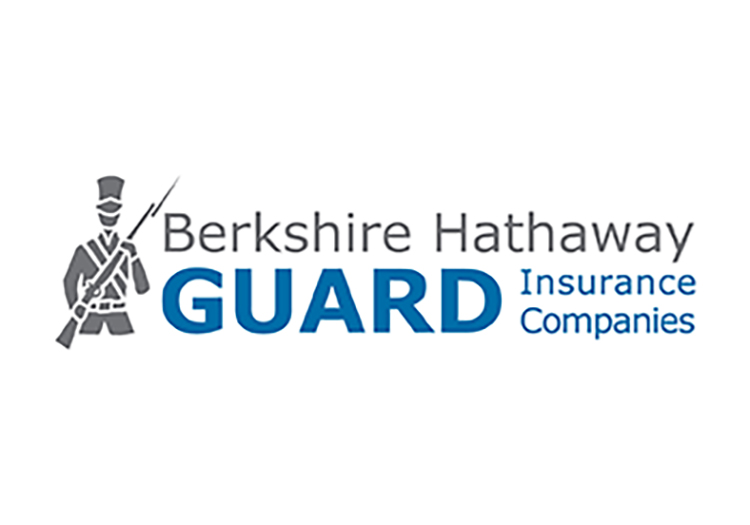Rising Star Thompson Mackey Dishes on the Biggest and Most Pressing Trends in Cyber

Come see the Stars! As part of our ongoing coverage of the best brokers in the commercial insurance space, Risk & Insurance®, with the sponsorship of Philadelphia Insurance, is expanding its coverage of the Rising Stars, those brokers who represent the next wave of insurance brokering talent.
Look for these expanded profiles on the Risk & Insurance website and in your social media feeds now and continuing into 2022.
Here’s a look at Thompson Mackey, risk management consultant at EPIC Insurance Brokers, and a 2021 Cyber Power Broker winner and Rising Star.
Risk & Insurance: Can you describe your brokering journey so far? How did you find your way into the insurance industry and what led you to the role you have today?
Thompson Mackey: Like most people, I stumbled into the industry. I started my career in investment consulting for a global investment consulting firm based out of Washington, D.C.
I went there with the career path vision of working for hedge funds and doing institutional finance and quickly realized that was an extremely competitive industry that was very ripe for disruption. This was around the time of Airbnb disrupting the hotel industry, Uber disrupting the taxi industry — a lot of just technological disruption to legacy industries.
And so I thought, financial services is certainly an industry that’s ripe for disruption and started studying where that might go next. Through that, I learned about the commercial insurance industry.
I started looking for opportunities in the commercial insurance space and found EPIC, a relatively young firm and growing, with a great team. I joined EPIC in 2014 and haven’t looked back.
R&I: What are some of the top trends you are watching in the cyber space right now and why are they on your radar?
TM: Cyber is top of mind for every commercial insurance broker, CISO, risk manager and CFO today. It’s a very “timely” time for cyber.
Demand for cyber insurance has never been higher. Every company is suddenly aware of their risk for cyber, and increasingly, they’re aware that those risks are not covered by traditional property and casualty insurance programs. The ransomware attacks on Colonial Pipeline, and a number of more public-headline-type events, have increased awareness of the need for the product, and demand has just never been higher.
At the same time, supply is constrained.
Previously, we were able to go out to the market and buy at least $10 million of limit at a time — in some cases, $20 million of limit. Today, it is rare to find any one carrier willing to put up more than $5 million of limit at a time.
On one hand, we have demand skyrocketing hundreds of percent, while supply is extremely constrained. That’s driving prices up. We’re seeing year-over-year rate increases, anywhere from 20% to 200%, while terms and conditions are being tightened, retentions are increasing, and underwriting scrutiny is heightened.
“To get the best results in the broking process, you have to have a comprehensive and succinct understanding of the insured and the risk profile and be able to present that to the right market, in an easily digestible way, that yields quick underwriting and favorable results for the insured.” — Thompson Mackey, risk management consultant, EPIC Insurance Brokers
Underwriting scrutiny is the highest I’ve ever seen. It’s very, very technical underwriting. Everyone is requiring ransomware supplemental applications, and without robust cyber security protocols in place, including segregated backups, multi-factor authentication implemented across network, etc., it’s difficult to buy cyber insurance. That’s another trend we’re watching in the very, very near term.
In the long term, one trend we should expect to see is the alignment of various carriers’ policy language, terms and conditions. Each carrier, each market has their own policy form, oftentimes manuscripted, and terms and conditions vary widely across carriers. We will see cyber coverage start to standardize, through the evolution of the cyber policy, from one company to another.
We’re also going to start to see, because of the recent actions by the federal government, regulations increasing around cyber risk, which potentially will affect underwriting as well. I think regulatory bodies for certain industries may mandate and enforce a higher standard of data collection, data storage and regular reporting of cyber risk exposure.
R&I: What would you say is the mark of a good broker, and how are you striving to meet that mark yourself?
TM: I think, first and foremost, having a very deep, very technical understanding of the insured’s business is step one. Our job as a broker is to represent the insured in the insurance marketplace in the best light possible and to ensure that underwriters have all the information so that they can properly and comprehensively underwrite the risk.
Once you have that complete understanding of the insured, the ability to leverage market relationships is absolutely critical.
As an example, a cyber underwriter in today’s market is overwhelmed with submissions — they cannot possibly underwrite each and every risk that comes across their desk. Having an upfront understanding of each insurance company and each underwriter’s risk appetite, capabilities from a coverage terms and condition standpoint, and competitiveness on each type of risk that you may send them, not only saves them time, but it also saves the broker and the insured time as well, making the entire risk transfer process more efficient.
Ultimately, a broker should be judged on the results of the broking process. And to get the best results in the broking process, you have to have a comprehensive and succinct understanding of the insured and the risk profile and be able to present that to the right market, in an easily digestible way, that yields quick underwriting and favorable results for the insured.
R&I: Who has/have been a mentor(s) to you throughout your career and why?
TM: I have been fortunate to have many mentors over the years. My broking philosophy, technical knowledge and way of thinking about risk has been influenced by dozens of individuals, and it would be impossible to name them all.
Jeff McCart of EPIC hired me, brought me into the risk management industry and has been the most influential mentor in my career.
Outside of EPIC, I leaned on underwriting teams in my early days in the industry to help me view risk from their underwriting perspective and understand why their policy form is different or unique to others. That comparison really helped me understand the mechanics of the insurance coverage form and the important differences that could easily be missed amongst the dozens of pages of policy language that are absolutely critical in the event of a claim, whether covered or not covered.
R&I: What advice would you give to an up-and-coming insurance/risk professional looking to gain a better understanding of the industry?
TM: Don’t be afraid to ask questions. Everyone started from somewhere, and I believe everyone is constantly and forever on a path of learning and education. Even when it may seem like a question that you should know the answer to, asking questions opens up a dialogue. That dialogue is the best way to learn, not only true facts about the industry, but also individual perspectives on the industry.
Certain topics are really subjective and may not have one correct answer. But understanding and learning about how people think, about the complex problems that we deal with on a day-to-day basis, helps you formulate your own perspective on the topic.
The more conversations, the more dialogue you can have with people in all elements of the industry, is going to lead to a more holistic, more comprehensive and better grounded understanding of the complex topics that we have to deal with as an industry.
In addition to that, all of the designations are truly great sources of information and education, whether it is the CRM or ARM programs, the CPCU or others. These more standardized educational routes are a great way to supplement the information that you can gain from interpersonal dialogues. &











